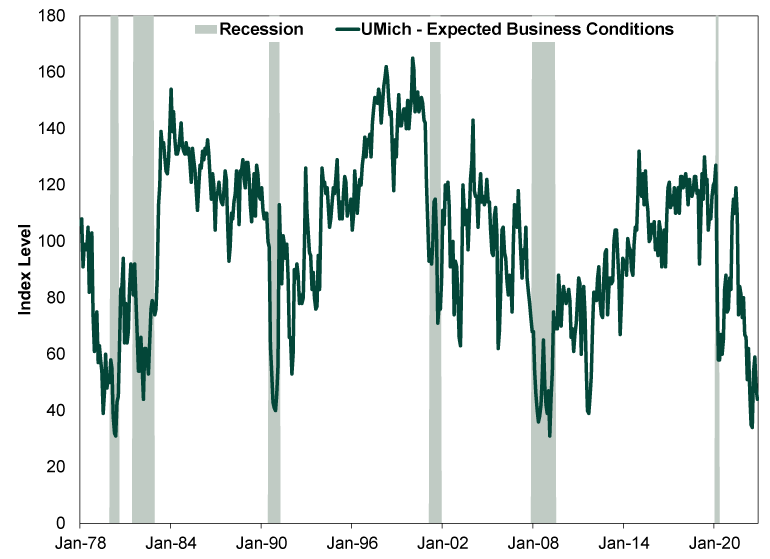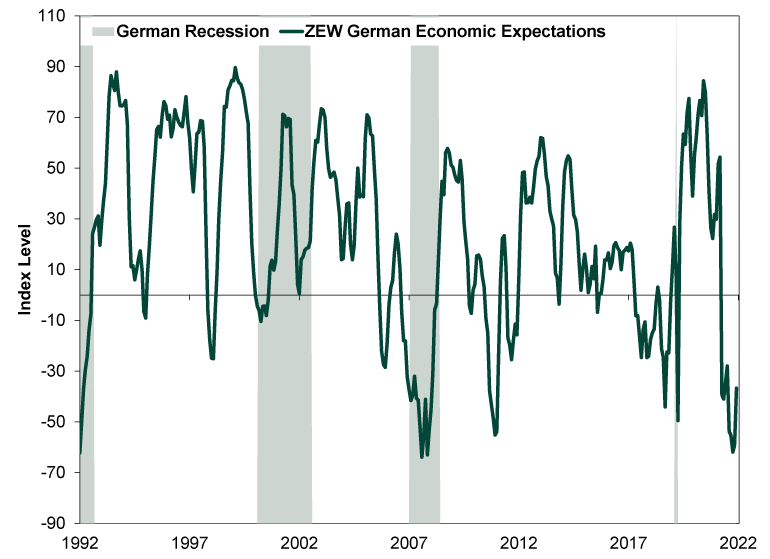Personal Wealth Management / Market Analysis
What to Make of Recent Wintertime Blues
The latest sentiment measures confirm moods are down—what does that mean for markets?
It seems 2023 can’t come soon enough for investors. Global stocks are down this month, and based on the latest sentiment gauges, wintertime blues are prevalent. Down moods are understandable, but in our view, it is crucial to remember feelings alone don’t predict the economy or stocks.
The recent spate of sentiment surveys in the US and overseas showed some minor improvements, but the picture remains dour overall. Bank of America’s December fund manager survey found a majority of investors (68%) think recession is likely in the next 12 months, easing a bit from November’s 77%.[i] A recent Wall Street Journal poll noted 67% of surveyed US voters think the economy is in bad shape—slightly better than October’s 72% read—with 52% projecting worsening conditions over the next year.[ii]
Across the pond, research firm GfK reported its UK consumer-confidence barometer improved to -42 in December from November’s -44.[iii] This was the 8th straight monthly reading of -40 or worse—a first since GfK’s records begin almost 50 years ago—as some slight improvement in their view of next year’s general economic situation didn’t prevent consumers from feeling down about their personal finances. The Ifo institute announced German business morale was better than expected in December, with expectations rising to 83.2 from November’s 80.2, and though economists acknowledged recession odds fell a bit, a downturn is still the baseline expectation.[iv]
Now, sentiment measures can do a great job showing respondents’ feelings in the moment, but we have found they are coincident indicators at best—not revealing about future activity. Feelings are fickle, and moods can change based on a multitude of reasons, from reading something on Twitter to experiencing a personal, real-life event (e.g., receiving a pay raise or lack thereof). For an illustrative hypothetical example, consider someone who reads an article about weaker-than-expected Black Friday sales right before taking a December survey. That news may dampen her mood, so she responds she is less optimistic about the economy in the coming months. But what if the next day she visits her favorite retail shop, serendipitously finds a deal on a big-ticket item on her wish list and ends up purchasing it? This is only a hypothetical, but our research shows consumer sentiment doesn’t indicate much about consumer spending.
Taking this concept more broadly, feelings about the future don’t tell you much about upcoming economic growth. Take the widely watched, US-focused University of Michigan’s Consumer Sentiment survey, which asks myriad questions—including one about expected business conditions in the next 12 months. As Exhibit 1 shows, extreme lows usually occur during recessions—not before—and there are plenty of big declines during economic expansions.
Exhibit 1: Expected Business Conditions Aren’t Predictive, US Edition

Source: FactSet, as of 12/19/2022. University of Michigan Survey of Consumers – Business Conditions Expected During the Next Year, monthly, January 1978 – November 2022. Recession dating based on NBER business cycle dates.
This isn’t just a US phenomenon—see Germany, Europe’s largest economy. In the ZEW economic sentiment index, negative readings indicate a majority of surveyed analysts have a pessimistic view of the German economy over the next six months. As Exhibit 2 shows, yes, there are times when pessimistic expectations seemed to align with the start of recession. But there are also other times when views were negative and Germany didn’t enter recession, including the past decade.
Exhibit 2: Expected Business Conditions Aren’t Predictive, German Edition

Source: FactSet, as of 12/19/2022. ZEW Financial Market Survey – Economic Expectations, December 1992 – November 2022. German recession dating based on German Council of Economic Experts.
It isn’t a shock people are moody now amid grim forecasts, feared energy shortages and deteriorating economic data. But sentiment surveys just reflect all of this widely known information—they don’t say anything new or what will happen. What actually happens over the next 3 – 30 months and how that squares with these dour expectations is what will move stocks, in our view.
[i] “BofA Survey Says Investors Are Less Gloomy on Growth Over China,” Sagarika Jaisinghani, Bloomberg, 12/13/2022.
[ii] “Americans Expect Worsening U.S. Economy in 2023, WSJ Poll Finds,” John McCormick, The Wall Street Journal, 12/16/2022.
[iii] “U.K. Consumer Confidence Rose to Five-Month High in December,” Xavier Fontdegloria, The Wall Street Journal, 12/15/2022.
[iv] “German Business Morale Approaches 2023 on High Note – Ifo,” Staff, Reuters, 12/19/2022.
If you would like to contact the editors responsible for this article, please message MarketMinder directly.
*The content contained in this article represents only the opinions and viewpoints of the Fisher Investments editorial staff.
Get a weekly roundup of our market insights
Sign up for our weekly e-mail newsletter.

You Imagine Your Future. We Help You Get There.
Are you ready to start your journey to a better financial future?

Where Might the Market Go Next?
Confidently tackle the market’s ups and downs with independent research and analysis that tells you where we think stocks are headed—and why.





